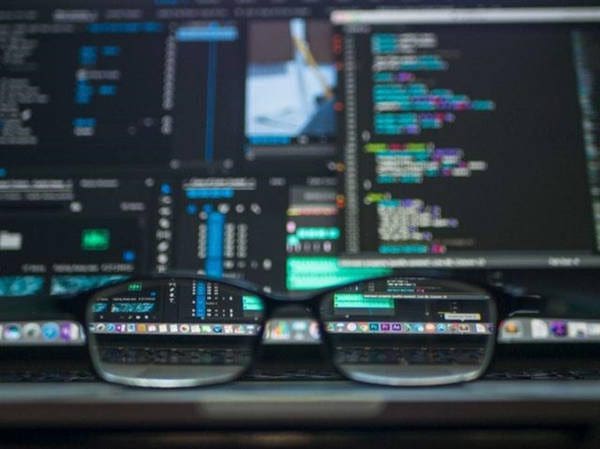 The Future of Careers in Data Science & Analysis
The Future of Careers in Data Science & Analysis
As the fields of data science and analysis continue to expand, the next crop of bright minds is always needed. Learn more about the nuances of these jobs and find where you can fit in for a rewarding and interesting career.
By Frankie Wallace, blogger.

Are you looking for a career where you can change the face of an entire industry? If so, then the fields of data science and analysis provide many opportunities to impact just about any type of business, from retail to healthcare.
The need for new data scientists and data analysts is growing by the year, and bright minds are needed to fill the gaps. These fields are complex and sophisticated, but any individual who can harness the necessary skills will have many career options from which to choose. To better understand the possibilities, let’s look at the nuances of these positions and where you could work in the future.
Data Scientist vs. Data Analyst
While there is a slew of new careers for both data analysts and scientists across many industries, those interested in these highly sought after positions must first decide which job they are most interested in. At its most basic, the difference between these two positions is that the data scientist understands the need for data and mines for it, while the analyst uses the data they found to understand trends. Both jobs are showing big potential, with some predictions stating that the need for these positions will elevate by 28% by 2020.
Those interested in the data science field will need to have an advanced understanding of math, including statistics and probability theory, which will be needed to interpret the data. An understanding of programming languages, including Python and C/C++, is also a requirement because coding is necessary to mine and organize the data properly.
The scientist is responsible for understanding how data could help any particular field. Once they understand which data they need to find, models are created, and systems are programmed so that this data can be unearthed. Finally, they must know how to separate and interpret the data to verify that what they found is as useful as they hope.
On the other side, the data analyst comes in after the fact to make sense of the data created by the scientist. They work in a variety of industries to either solve problems or predict trends and then provide their statistical analysis to management and stakeholders in an easily digestible format. Data analysts need to understand numbers. They need to be able to use critical thinking and see through the details to come up with logical conclusions, and if they need more info, they have to communicate their needs clearly to the data scientist.

Every Business Needs Data
Every single thing that consumers do creates data. Whether it is going to the doctor, buying groceries, or watching videos online, and all of that data is crucial for the creation and advancement of a company's products. While this is a known fact to many business professionals, a manager or CEO may not comprehend how to obtain and present this information, and that is why the careers of data analysts and data scientists are so highly sought after.
Both professions are highly requested by any company that has a marketing division. The skills can be used to determine what customers are buying and what they are interested in purchasing in the future so that better marketing campaigns can be devised. After the campaign is created, data can then measure how the customers are taking to the marketing, and if they are buying what the company is trying to sell. One example is Netflix, which often sends out emails recommending a particular movie or TV show. They create these suggestions by going through the data and finding out what interests subscribers, with the intended end result of getting you back on their platform.
Every business needs to have a risk management plan in place that categorizes potential damage to products or customers, along with a plan of action to solve the issues. Data analysts and scientists help with this too. For example, banks can use data analysts to gauge the risk involved in offering a high-dollar loan, or transportation companies can better understand the risk of potential accidents as well as how to make the claims process easier so their vehicles can stay on the road and improve overall efficiency.
Major Industries Need Analytics
There are many other reasons why the world’s biggest industries need data professionals, so someone looking into these two careers can have their pick of the litter. For instance, the healthcare industry has taken to data analytics to look at a number of areas, including physician performance, patient and hospital costs, and health risks in any particular area of the world. Big data is even making strides towards solving the opioid crisis and understanding trends that could cure cancer.
The energy sector is also looking for bright minds that can help find alternative energy sources, increase efficiency with current power, and find new ways to avoid power outages in problem areas. The manufacturing industry also uses data to understand the supply and demand of the products they produce, so companies save money, and customers get what they need. Data can also help to predict when machinery might break down so preventive maintenance can keep the factory working on all cylinders.
Once data becomes available, it is essential to protect it at all costs, and that is why data professionals encourage businesses to protect this valuable information. To avoid data loss, experts recommend taking the time to keep all backup systems up to date and to immediately avoid using a server if it is found to be corrupted. Protecting data is essential, because losing information, particularly user records, could result in a loss of customers and revenue.
The future of data analytics is very bright, and anyone with the drive and dedication to learn a complex field can thrive. Take a look at these promising careers and industries, and be a part of the revolution.
Related:



